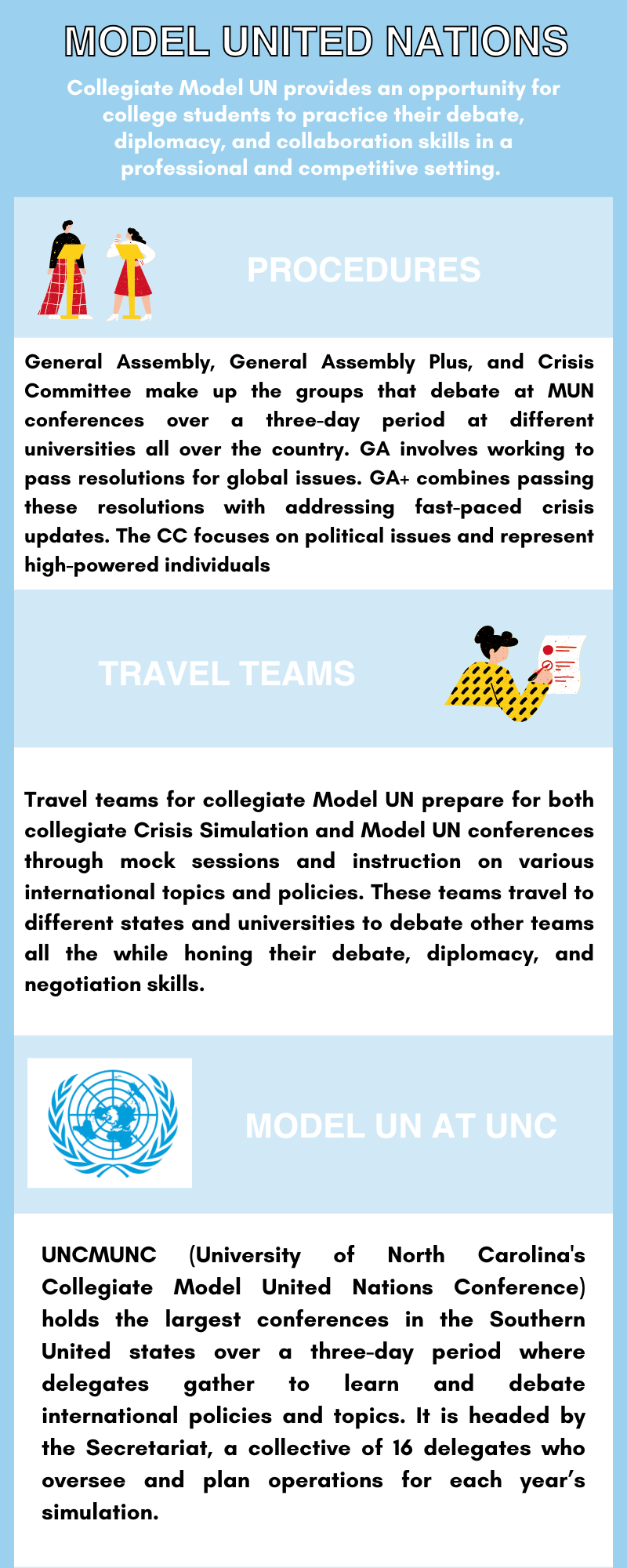Model UN is a popular extracurricular across the world. Those interested in roleplaying, countries, delegates, and crisis teams join together to discuss and debate the best way to resolve their respective issues.
In college, specifically at The University of North Carolina at Chapel Hill, students from every major and interest get together on a weekly basis to discuss their next travel meeting, which is a large part of their learning process. Students also begin drafting resolution papers to engage with and focus on different international topics as delegates of their respective countries. They will use these different topics, papers, and practice sessions to prepare for their conferences, which occur about every month over the course of a week, the most recent one occurring in Boston and hosting a multitude of college Model UN teams from across the country. Eventually, students work their way up from members to head delegates, where they will begin to not only participate in debates but also coordinate conferences and meetings with other head delegates.
I wasn’t entirely aware of what Collegiate Model UN is made up of, so I did research and compiled key information to aid in others and my own understanding of the debate process. This includes what it is, what skills students grow, different teams, and Model UN at UNC specifically.

There are many different moving parts to being on a collegiate Model UN team, so I asked a key member of their team, Lindsay Mcrae, a Vice-head Delegate at UNCMUN, to explain the process for meetings, planning, local conferences, and travel conferences. She does this in an interview video while highlighting how Model UN has improved her academic, professional, and personal life.
Recent Comments
new comments will appear here